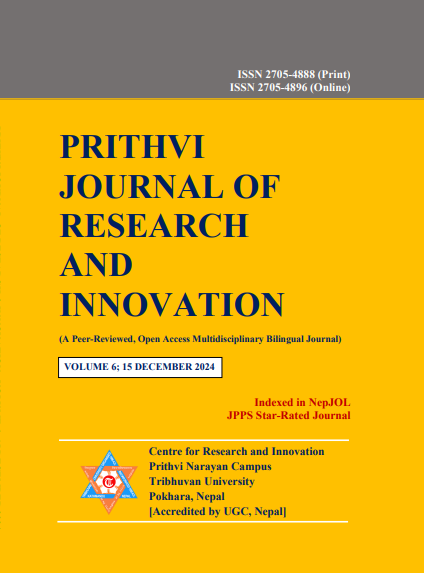Evaluation of Ambient Air Quality and Health Risk Awareness in Vulnerable Workplaces of Pokhara City, Nepal
DOI:
https://doi.org/10.3126/pjri.v6i1.72855Keywords:
Air quality, occupational safety, particulate matter, personal safety, public awarenessAbstract
The ambient air pollution in workplaces poses adverse effects on the health of individuals, which in turn directly affects the competence of the workers and overall productivity. Rapid urbanization, vehicle emissions, factory exhausts, cooking, and the burning of agricultural and domestic waste in growing cities are the major contributors to air pollution, which is harming the health of occupants. The purpose of this study is to assess the levels of particulate matter, the degree of awareness, preventive measures, and the health status of workers at the vulnerable workplaces in Pokhara, Nepal. We assessed the concentration of particulate matter in workstations using a portable pollution meter and carried out a detailed survey with the employees during the peak pollution season in April 2024. The results reveal that the average PM2.5 level at the sampling site (201.4 µg/m³) significantly exceeds the safe pollution threshold of annual average 35 µg/m³ and 24-hour average of 75 µg/m³ set by the World Health Organization (WHO) whereas the interim target is to reduce to 25 µg/m³ annually and 50 µg/m³ daily average. A comprehensive survey conducted at 10 randomly selected sites revealed that most workers are engaged without sufficient awareness, precautionary measures, health care services, or emergency requirements. The findings of this study highlight the necessity for public awareness and consolidate the importance of communal efforts to endorse a safe environment and healthy working conditions for sustainable urban development.
Downloads
Downloads
Published
How to Cite
Issue
Section
License

This work is licensed under a Creative Commons Attribution-NonCommercial 4.0 International License.
© Centre for Research and Innovation (CRI), Prithvi Narayan Campus (TU)

